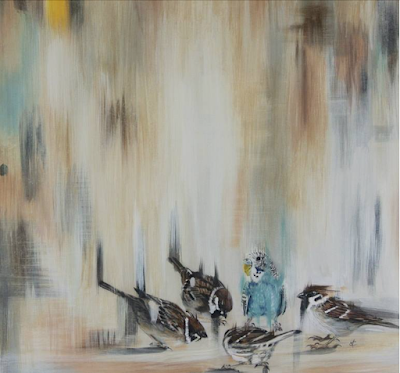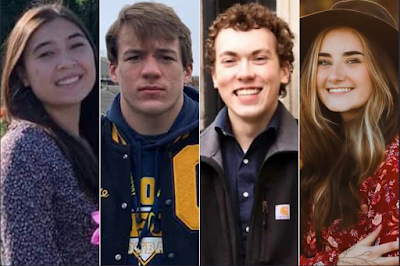by Donna Katzin
 |
| In this photo taken by a drone, buildings are demolished in downtown Mayfield, Ky., on Saturday, Dec. 11, 2021, after a tornado traveled through the region Friday night. Ryan C. Hermens/Lexington Herald-Leader via AP |
Where cold and warming winds collide,
twisters—minions of an angry earth—
lash out in pain, flatten farms, homes,
houses of work and worship in their paths.
As roofs rain bricks in darkness,
mothers, fathers, sons, daughters,
sisters, brothers sit in cellars,
making calls never returned.
When the wild ones have gone, survivors pick
through mauled metal, shredded remains.
A bus lies on its back—a turtle shell
with the body sucked out.
Splintered ghost trunks rise
like hands to heaven.
There are no voices now.
Even wind has no words.
Cadaver dogs sniff through rubble.
Crews root around the clock
for what is left of men and women
who worked the late shift,
even after alarms screamed,
for twelve dollars an hour
making candles to light consumers’ holidays
at the factory now extinguished.
On Sunday morning, faithful gather,
console and hold each other,
interrogate the Almighty,
sing hymns of hope
to staunch despair.
A few pray for the mother
planet we torture at our own peril—
who will not be patient forever.
Donna Katzin is the founding and previous executive director of Shared Interest, a fund that mobilizes the human and financial resources of low-income communities of color in South and Southern Africa. A board member of Community Change in the U.S., and co-coordinator of Tipitapa Partners working in Nicaragua, she has written extensively about South Africa, community development and impact investing. Published in journals and sites including The New Verse News and The Mom Egg, she is the author of With the Hands, a book of poems and photographs about post-apartheid South Africa’s process of giving birth to itself.







